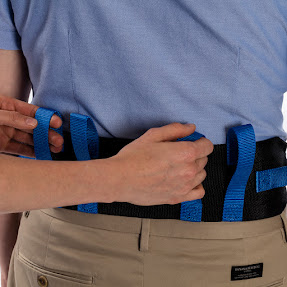5 Vaccines Recommended for Seniors
1. High-Dose Influenza (Annual): Yearly flu shots to protect against seasonal influenza.
2. Pneumococcal: This vaccine guards against pneumococcal diseases, including pneumonia.
3. Shingles: Essential for preventing painful shingles outbreaks.
4. Diphtheria, Tetanus, and Whooping Cough (Tdap): Protects against three serious diseases in one shot.
5. Respiratory Syncytial Virus (RSV): Particularly important for older adults with weakened immune systems.
Discussions with Healthcare Providers and Tips for What Can be Done at Home
Also discuss with doctors, depending on their immunodeficiencies or other treatments that can lead to lowered immunity. Make sure you bring up what vaccinations you and others around them should receive to keep them healthy. Or bring up the ways you can prevent spreading of bacteria or viruses. During flu season try to use something like Lysol anti-bacterial spray on frequently touched household surfaces (i.e. - doorknobs, light switches, faucet handles). Look into things that can disinfect that will not hurt them as well. Breathing problems is a main issue. For instance, bleach cleans extremely well, but how is going to affect someone with diminished lung capacity if you use it as a cleaner around them. Also remember anyone with any immunodeficiency can have an issue with malnutrition. This is especially the case if they have disorders like Crohn's disease or they are on any medications or treatment regimens that can cause appetite loss, nausea, and/or vomiting. A great way to alleviate this is to introduce protein shakes and low residue diets. This consists of a low fiber diet. You do have to be careful with this and speak to your physician. For instance, for people that are not as mobile this could be a bad idea and cause constipation and bowel impactions. Another way to help this is to get a physical therapy regimen from your physician. You can also look online and see ways you can do this at home. Just make sure what regimen you look up is safe through a physician or healthcare provider. Try to look in to local medical supply stores to get supplies to help with physical therapy. One major one to invest in is a gait belt or transfer belt.
 |
| Image of a Gait or Transfer belt |
*A gait belt or transfer belt is a device put on a patient who has mobility issues, by a caregiver prior to that caregiver moving the patient. Patients may have problems with balance and a gait belt may be used to aid in the safe movement of a patient, from a standing position to a wheelchair, for example.*
This is extremely helpful to the caregiver as well and the person being cared for. It makes moving the person you are caring for safer when doing at home physical therapy.
Reference Links
